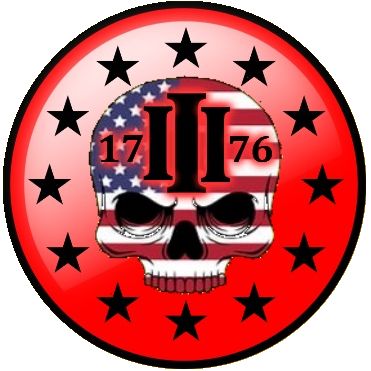(The following article is part two in a series about democracy and the democratic process in a republic. You can read part one here: Democracy Is Not a Dirty Word)
When liberals call Trump a threat to democracy, conservatives often counter that the US is a republic, not a pure democracy. Yet, how do some communist and authoritarian regimes also label themselves as republics? This raises the question: what truly defines a republic, and how does the US system differ from these authoritarian regimes that adopt the same label?
Communist countries, such as the People’s Republic of China (PRC), Democratic People’s Republic of Korea (DPRK), or the former United Soviet Socialist Republics (USSR), label themselves “republics” despite lacking democratic processes. Here’s why:
Definition of a Republic:
- A republic, at its core, is a system where the head of state is not a monarch, and power is held by the state or its representatives, often through a constitution. It doesn’t inherently require democracy, just the absence of hereditary rule.
- Communist countries adopt the term “republic” to signify they’ve replaced monarchies or colonial rule with a government claiming to represent the “people,” even if it’s controlled by a single party or elite.
Communist “Republics” and Propaganda:
- Countries like China and North Korea use “republic” to project legitimacy and popular sovereignty, often pairing it with terms like “people’s” or “democratic” (e.g., DPRK) to suggest public support, despite lacking free elections or citizen input.
- Their constitutions (e.g., China’s 1982 Constitution) claim to represent the working class, led by the Communist Party, but in practice, power is centralized in a small leadership (e.g., China’s Politburo, North Korea’s Kim dynasty).
Lack of Democratic Processes:
In these systems, there’s no representative democracy:
- No Free Elections: Candidates are pre-selected by the ruling party (e.g., China’s National People’s Congress rubber-stamps party decisions; North Korea’s elections offer one candidate).
- No Pluralism: Opposition parties are banned, and dissent is suppressed, unlike the U.S.’s competitive elections and free speech.
- No Checks and Balances: Power concentrates in the party or leader, with courts and legislatures serving as extensions of party control, not independent checks.
The “republic” label is largely symbolic, masking authoritarian control under the guise of popular rule.
Tyranny Defined:
- Tyranny occurs when power is concentrated in a single authority (e.g., a leader, party) without consent or accountability, leading to oppression or loss of freedoms.
- In a republic without democratic processes (e.g., free elections, representation), the government may claim to act for the people but operates without their input, that is tyranny.
Communist Republics as Tyranny:
- China (PRC): The Communist Party controls all branches of government, censors speech, and suppresses dissent. Citizens can’t vote out leaders or influence policy, making it authoritarian despite the “republic” label.
- North Korea (DPRK): The Kim family’s absolute rule, with no elections or freedoms, is a clear tyranny, despite the “Democratic People’s Republic” name.
These systems lack the U.S.’s democratic safeguards (elections, checks and balances, rule of law), allowing the ruling party to subjugate citizens, aligning with your earlier definition of subjugation as coercive control.
U.S. Contrast:
- The U.S. is a constitutional representative democracy within a republic, where democratic processes (elections, free speech, judicial independence) prevent tyranny. As I have said for years, without democracy, a republic risks becoming tyrannical, as there’s no mechanism to reflect the people’s will or limit power.
- The U.S. Constitution’s checks and federalism ensure accountability, unlike communist republics.
Exceptions and Nuances:
- Some republics have limited democratic elements but aren’t fully tyrannical (e.g., Singapore, a republic with elections but dominant-party control). However, communist republics like China and North Korea lean toward tyranny due to near-total suppression of dissent and participation.
- A republic without democracy, if it has other accountability mechanisms (e.g., legal protections, limited elections), isn’t automatically tyrannical. But most communist republics lack these, concentrating power in ways that oppress citizens.
Why They Can Call Themselves Republics
Communist countries can call themselves republics because the term doesn’t require democracy—only the absence of a monarchy and a claim to represent the state or people. Their use of “republic” is often propaganda, masking centralized control by a party or leader. For example:
- China: Claims to be a “people’s republic” led by the Communist Party for the working class, but citizens have no real say.
- North Korea: Labels itself a “democratic people’s republic,” yet power is hereditary within the Kim family, with no democratic input.
This contrasts with the U.S., where the republic functions through democratic elections, ensuring governance reflects public will, as you emphasized in your rewrite about democracy preventing tyranny.
Conclusion
Communist countries like China and North Korea call themselves republics to project legitimacy, but their lack of democratic processes—free elections, pluralism, or checks on power—makes them authoritarian, often tyrannical, as they subjugate citizens without accountability. A republic without democracy risks tyranny because it lacks mechanisms for consent and representation, unlike the U.S.’s constitutional representative democracy, which balances citizen input with constitutional safeguards. This distinction highlights why the U.S. avoids the centralized control seen in communist “republics.”
Read the first article in this series, Democracy Is Not a Dirty Word


